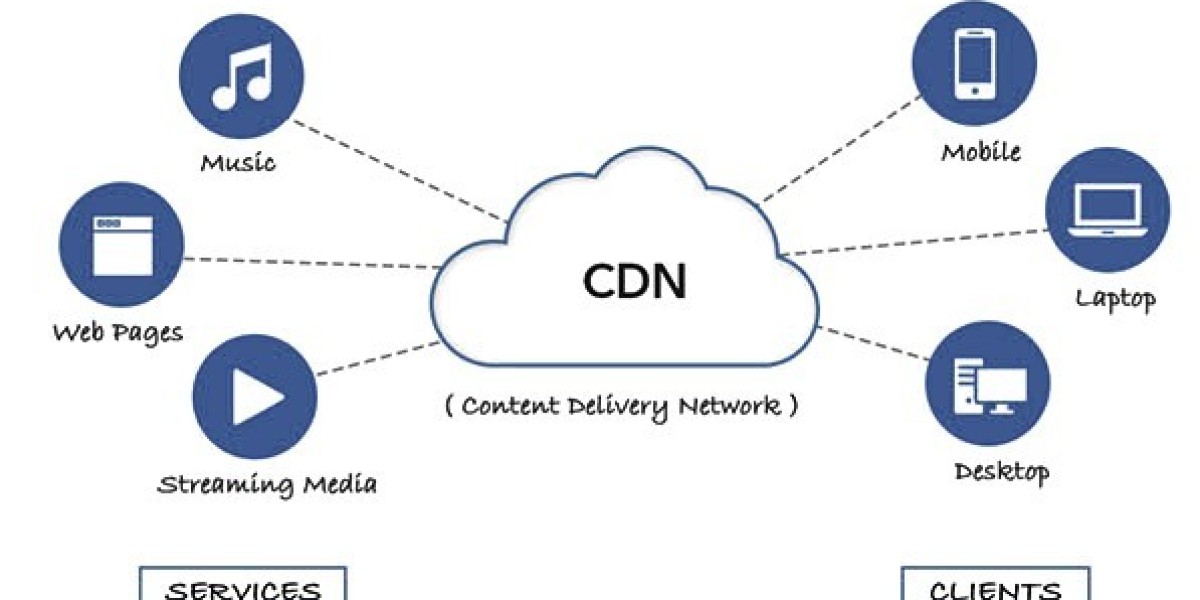What is a CDN?
If you want to order to VPS, you recently need to a CDN network. In simple terms, a CDN is a network of servers distributed worldwide to cache and deliver website content faster (sidata.com.ua - read more about it). The main idea is to speed up access to data for users, regardless of the physical location of your hosting server. Instead of routing every request to your main (origin) server, a CDN directs requests to the nearest server in its network, significantly reducing response time and speeding up page loads.
For example, imagine you have a visitor from Japan, but your server is located in Ukraine. Without a CDN, their requests would have to travel across continents, causing delays in page load times. But if that content is cached on a server in Tokyo, the user will access your site much faster. That’s the magic of a CDN.
How is a CDN Infrastructure Built?
To better understand how a CDN works, let’s break it down into its main components:
Origin Server
This is your main server where all your content (website files, videos, images, etc.) is stored. When a user requests content that hasn’t been cached by the CDN yet, the request is redirected to the origin server, and the content is then cached on edge servers.Edge Servers
These are servers distributed worldwide that cache content initially loaded from the origin server. They are responsible for delivering data faster by being as close to the user as possible.PoP (Points of Presence)
These are the locations where edge servers are situated. Strategically distributed across the globe, they ensure maximum coverage and performance. For example, SIDATA’s PoPs might be located in key cities across Europe and Asia to efficiently serve users from various regions.
How Does Page Loading Work with a CDN?
Let’s say your website operates on a server in Kyiv, but you have many users in the United States. Without a CDN, their requests would travel across the ocean, leading to longer load times and increased latency. However, with CDN servers in New York or San Francisco, user requests would be handled by the nearest server, ensuring faster page loads and happier visitors.
How Does a CDN Work?
Here’s a simplified process of how a CDN operates:
- A user enters your website’s address in their browser.
- The browser sends a request to a DNS server to determine the IP address.
- If your site uses a CDN, the DNS server returns the IP address of the nearest PoP.
- The request is sent to the edge server, which checks if the required content is cached.
- If the content is cached, it is delivered instantly. If not, the request is forwarded to the origin server, and the content is then cached on the edge server for future requests.
Benefits of Using a CDN
Using a CDN not only speeds up your VPS performance but also addresses several other critical challenges:
Reduced Server Load
If you have a high volume of visitors, requests can overload the main server. With a CDN, most traffic is redirected to edge servers, reducing the burden on the origin server.Protection Against DDoS Attacks
Many CDNs offer built-in solutions to protect against DDoS attacks and other threats, such as web application firewalls and SSL/TLS encryption.SEO Optimization
Faster-loading websites rank higher in search engines. Google and other search engines consider loading speed a key factor for ranking.Reliability and Redundancy
If one server fails, the CDN can redirect traffic to another, ensuring uninterrupted service.Scalability
CDNs automatically handle traffic spikes, which is crucial during advertising campaigns or major sales events.
Examples of CDN Usage
Websites with a Global Audience
If you have an online store with customers in different countries, a CDN reduces load times for all users, no matter their location.Streaming and Multimedia
For sites with large amounts of video content, a CDN is a must. For example, if you host online courses or live streams, a CDN ensures faster and smoother delivery without delays.Mobile Applications
For apps with heavy traffic, a CDN reduces latency, ensuring smooth operation even during peak loads.
When Should You Consider Using a CDN?
Not every website needs a CDN, but if your site loads slowly for users in other countries or frequently experiences traffic spikes, it’s time to consider implementing a CDN from SIDATA. This will help you not only speed up your site but also save resources and protect it from potential attacks.
Popular CDN Providers
The CDN market is vast, and finding the right solution can be challenging. It’s essential to choose a service that offers the best combination of speed, reliability, and security. Here are a few popular providers:
Cloudflare
- Free plan with essential features for small websites.
- Built-in DDoS protection and encryption support.
- Tools for performance optimization, such as automatic image compression and file size reduction.
Akamai
- One of the oldest and largest CDN providers, catering to high-load projects.
- Extensive network with thousands of servers worldwide.
- Advanced security and analytics features.
Amazon CloudFront
- A CDN service from Amazon Web Services (AWS), perfect for those already using AWS cloud solutions.
- Deep integration with other AWS services like S3, EC2, and Route 53.
- Scalable and highly customizable.
Fastly
- Focuses on minimizing latency and supporting dynamic content.
- Suitable for media platforms and e-commerce websites.
- Advanced customization options for experienced users.
Conclusion
Speed is everything today. If you want to stay competitive and attract more users, a CDN is a tool you should add to your website arsenal. By leveraging a CDN, you can deliver content faster, improve user satisfaction, and ensure the reliability and security of your online presence.
Source: Sidata.com.ua - https://sidata.com.ua/ru/blog/chto-takoe-cdn-i-pochemu-ego-vazhno-ispolzovat/



